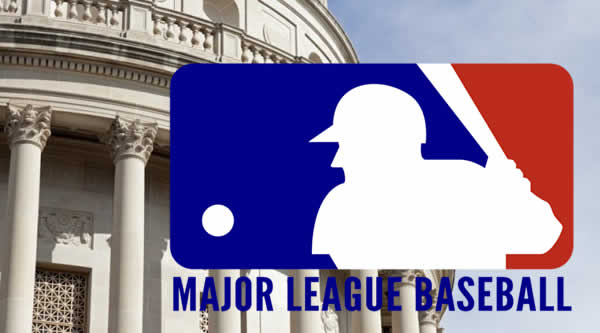As we await the Supreme Court ruling for the NCAA vs. Christie case, many states are now preparing for legal sports betting. Christie’s case claims that the Professional and Amateur Sports Protection Act (PASPA) is unconstitutional and that other states should have the option to allow sports betting. Some states including, West Virginia, Indiana, New York, New Jersey, South Carolina and more are already writing state legislature for if the bill passes. With states pushing harder for legalized sports betting the NBA and MLB commissioners are starting to push harder for a 1% integrity fee in case the bill does pass.
1% Integrity Fee
League commissioners requesting this integrity fee is expected to slow down the process and stop legal sports betting is some states. The commissioners have made it known that they will actively oppose any bill that does not include their 1% integrity fee. Most experts agree that that if states and leagues could get on the same page then the effort for legalized sports betting would go a lot smoother and move faster. Unfortunately, some states don’t agree with the 1% integrity fee and thus is causing problems. The 1% integrity fee is seen as preposterous among leading gambling officials as they claim it would render legal sports betting economically unviable when attached to a state tax and regulatory costs. Sportsbook operators believe that a 0.1% integrity fee is more reasonable and would be accepted among many operators.
Indiana Representative Alan Morrison, has drafted legislation for Indiana to allow sports betting that included the 1% integrity fee for leagues. Many of the sporting league officials believe this is a great idea but sportsbook operators argue that a 9.25% state tax and a 0.25 federal tax tacked on top of the 1% is a death sentence making legal sports betting un-profitable for operators. Other states such as West Virginia has already spoken out against the 1% integrity fee claiming that Nevada hasn’t had to pay it over the last 25 years. One sponsor to the house legislation even claimed she though it was a joke that the MLB won’t let Pete Rose into the hall of fame for betting on baseball but now they want to make income from bettors.
Where Is All This Money Going?
Many people are having a hard time taking the integrity fee seriously because the commissioners have yet to offer any details about where the 1% integrity fee would actually go. Would it go to fight illegal gambling activities or just to line the pockets of the league’s top officials? With this being the case the general public sees the 1% integrity fee as just a new revenue stream for the leagues with no real purpose but to slow down legal sports betting in the USA. Many people feel that the leagues should already be combating illegal activities and should have a clear route to where this money will end up if the integrity fee is to come into law as well. Leagues cannot combat illegal gambling activities by themselves and the past has shown us what illegal sports betting and game altering can do to the integrity of sports.
The Leagues
All the professional leagues in the USA have stated their opinion on legalized sports betting in America at some time or another. The NBA & MLB are spearheading this effort for the 1% integrity fee while other leagues are staying out of the foreground. The NFL has repeatably said they are against legalized sports betting but then they moved an NFL team to Nevada, leading fans to wonder how that’s going to work. The NFL has seemed to lighten their stance against the case over the past few years but recently they have just stayed out of the case. The NHL commissioner was quoted as saying he was in favor of legalized sports betting but didn’t believe his sport would see any real impacts if the states were to get their way. The NBA commissioner has been quoted as saying that expanded legalized sports betting is inevitable.
NCAA Vs. Christie Decision
As we await the Supreme Court decision which is expected to come some time in the summer of 2018 there is no telling what way the court will sway. Christie’s case is built on the back that the PASPA act is unconstitutional and that states should have the right to legalize sports betting. Other states are now arguing saying that it is unconstitutional to allow Nevada, Delaware, Montana and Oregon to have sports betting if they can’t. It sounds like kids telling on each other but there is some basis there. States are looking for new ways to produce revenue and at least 18 of them think legal sports betting would be a good source. Even President Trump before he was elected stated that he was in favor of legalized sports betting, which isn’t that surprising coming from a casino owner. If the states get their way sports betting operations are expected to be implemented through commercial or tribal casinos, or state-run lotteries.

